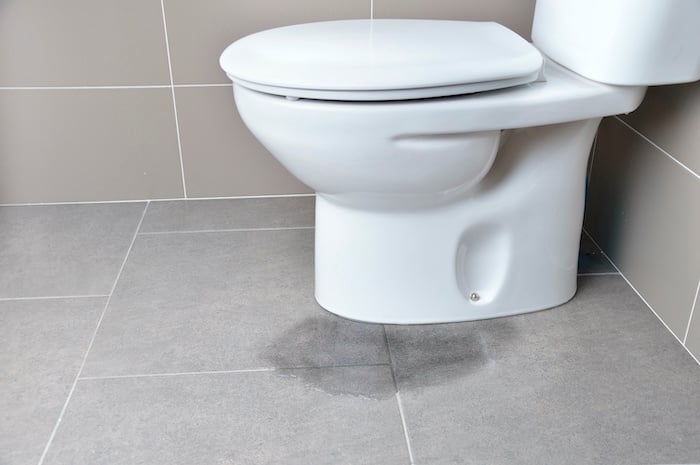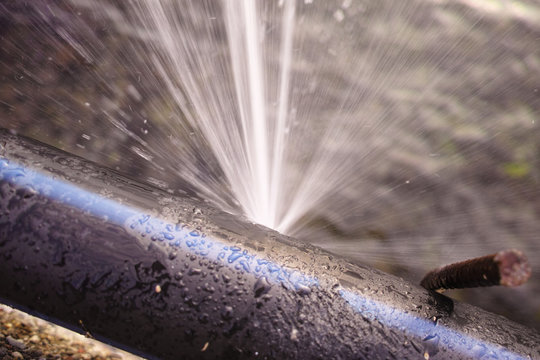5 Persistent Water Leak Factors
5 Persistent Water Leak Factors
Blog Article
Almost everyone will have their own unique assumption when it comes to Reasons for Water Heater Leaks.

"Be cautious of little expenses. A little leak will certainly sink a terrific ship." - Benjamin Franklin.
He couldn't have been more appropriate due to the fact that water leakages in our houses result in a waste of sources, boosting our water expenses. Although this increase could appear minimal initially, it can lead to significant expenditures that can damage your bank. Aside from a rise in expenses, water leakages additionally create undesirable natural growth, architectural damage, and also also electrical risks.
Determining if you have a water leakage isn't constantly simple as a result of being not able to see the majority of the pipework in your house. If you have had a rise in your water costs lately, saw water spots on walls and also ceilings, scented poor odor, etc. You could wish to think about requesting plumbing solutions to get it looked into.
There are a number of causes of water leakages, and we have actually put together the usual reasons listed below. Inspect to see if you have had relevant issues in your house recently.
Blocked drains
Food bits, dust, and oil can cause stopped up drains pipes and obstruct the flow of water in and out of your sink. If undealt with, increased pressure within the gutters can finish and cause an overflow up splitting or bursting pipes. To stay clear of stopped up drains pipes in your home, we recommend you to stay clear of putting bits down the drain and normal cleaning of sinks.
High water pressure
You saw your house water pressure is higher than common but then, why should you care? It's out of your control.
It would be best if you cared since your ordinary water pressure ought to be 60 Psi (per square inch) and although your house's plumbing system is developed to withstand 80 Psi. A rise in water pressure can place a strain on your house pipes and also result in splits, or worse, burst pipelines. Get in touch with a specialist concerning regulating it if you ever before see that your home water pressure is greater than normal.
Deterioration
As your pipework grows older, it gets weaker as well as a lot more prone to corrosion after the constant flow of water via them, which can gnaw at pipelines and also create fractures. A noticeable sign of rust in your home plumbing system is discoloration and although this could be hard to spot due to most pipelines hidden away. We encourage doing a regular checkup every couple of years as well as alter pipes once they are old to make sure a sound plumbing system
Deteriorated pipeline joints
Pipe joints are the components of our plumbing system where the pipes link. It is vital to note that even though pipes are made to hold up against pressure as well as last for a while, they weren't designed to last forever; consequently, they would wear away over time. A common indication of harmed pipeline joints is extreme noise from faucets.
Damaged seals
Another cause of water leaks in houses is damaged seals of residence appliances that make use of water, e.g., a dish washer. When such appliances are installed, seals are set up around water adapters for easy passage of water through the maker. A damaged seal can create leak of water when in usage.
With little or no expertise of plumbing, understanding your home's plumbing system enough to take care of a few of these issues (without effect) can be a problem. Contact plumbing specialists in Pittsburgh, Providence, Rochester, as well as environ today, and also they'll make those issues go away.
He couldn't have actually been a lot more ideal because water leakages in our houses result in a waste of sources, boosting our water bills. If you have had a rise in your water bills lately, saw water discolorations on ceilings and wall surfaces, smelt lousy smell, and so on. A boost in water pressure can place a strain on your home pipelines and lead to fractures, or even worse, burst pipes. One more reason of water leaks in homes is broken seals of residence appliances that utilize water, e.g., a dishwasher. When such home appliances are mounted, seals are mounted around water connectors for simple flow of water through the maker.
5 TIPS IN DETECTING A WATER LEAK IN YOUR HOUSE
Water leaks can be hard to find in your home, yet they can be so common. We rely on water every day in our home, which is why a leak can cause big problems. By detecting them early, you can save money and further damage, getting the problem fixed as soon as possible. Here are 5 tips to help you detect a water leak in your home, so you can contact a plumber straight away and get the issue sorted.
Check your water meter
Many people underestimate the value of the water meter in their home. It can be one of the best ways to tell if you have a leak early on, so you can get on top of it before issues start arising. Start by turning off all the water in your home: taps, washing machine, dishwasher, etc. Now take a look at the meter – if it’s still changing with everything turned off, it’s likely you have a fast-flowing leak that you need to get on top of straight away. If nothing changes, then leave your meter for an hour or two and come back to it. Did it change in this time? It’s likely you have a slower leak, which isn’t as urgent but still handy to get fixed so it doesn’t become a bigger problem.
Keep an eye on your bill
Another good way to detect a leak in your home is by keeping an eye on your water bill. It helps if you have a past bill from the same period of time. You can compare like for like and determine whether your water usage has increased significantly. If it has, there may be a leak in your system that you haven’t picked up before. A professional plumber can check through all of your pipes and determine where it is coming from.
Look for damage
If you have a leak inside your home, you will notice damage over time. Take a look at your showers and bathtubs and note whether any of the tiles surrounding the area seem to be discoloured or damaged in any way. There may be water stains, mould or peeling material that has resulted from a build up of moisture over time. Make sure you take a look under sinks at the back of cupboards that don’t get accessed regularly. This is where damage can go unnoticed and build up over periods of time.

Do you really like reading about Common Causes of Water Leaks in the Home? Leave feedback further down. We'd be glad to find out your reactions about this write up. Hoping to see you back again later on. Enjoyed our entry? Please share it. Let someone else check it out. Thanks a lot for your time. Don't hesitate to visit our site back soon.
Visit Homepage Report this page